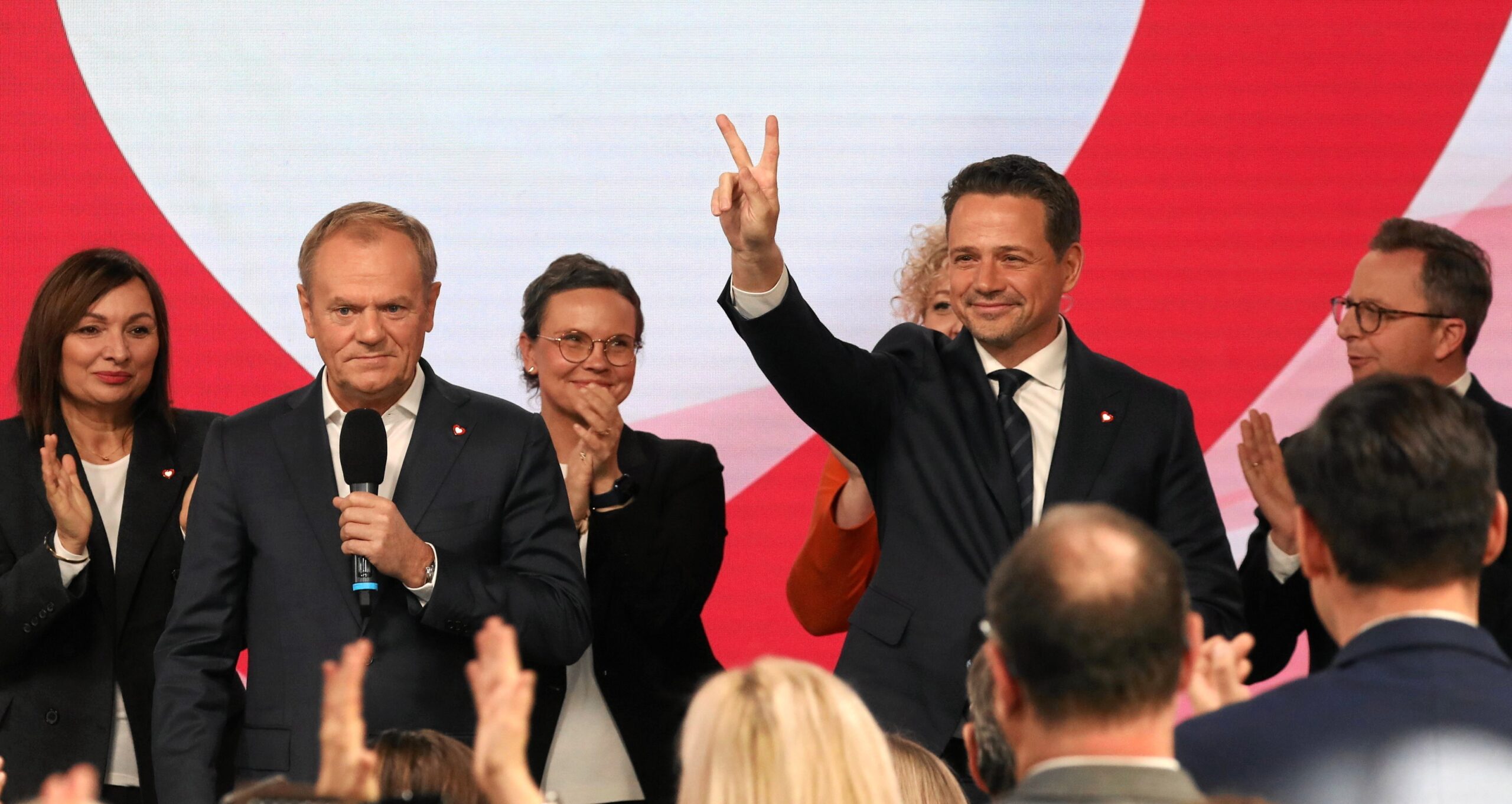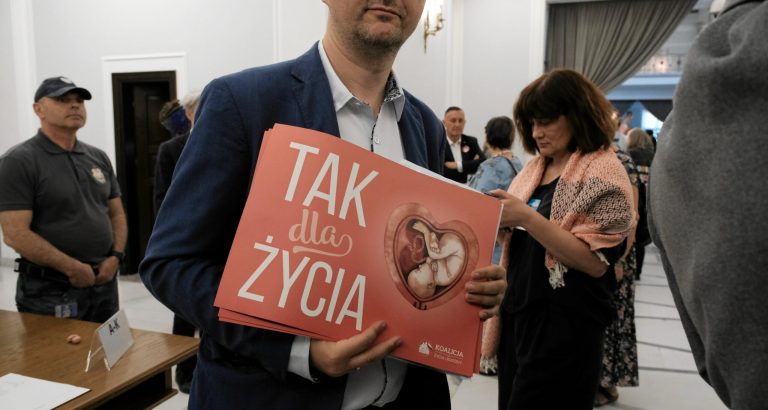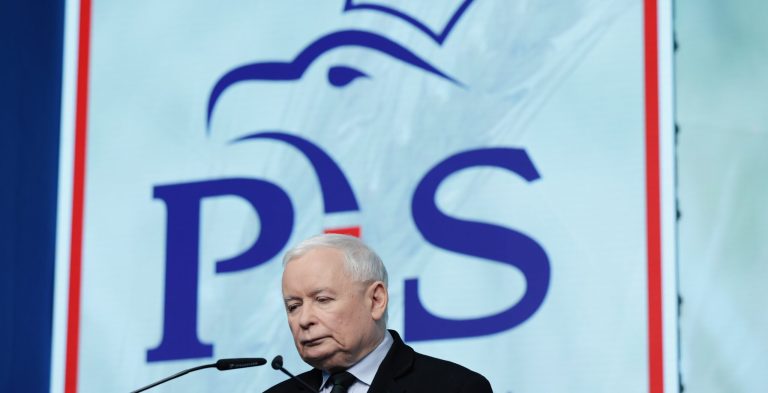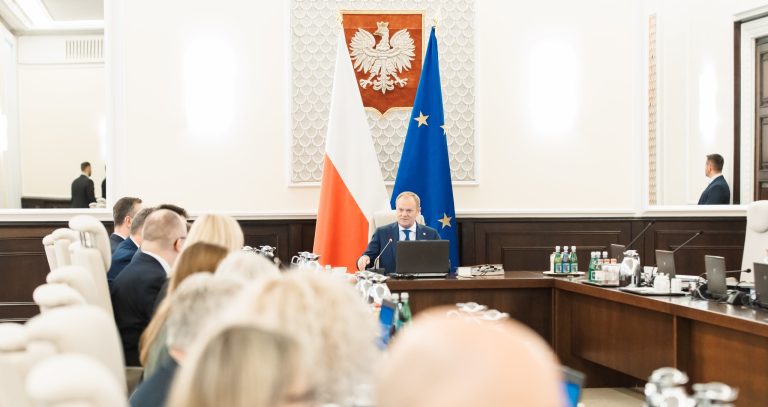Main Polish ruling party names Rafał Trzaskowski as presidential candidate after primary election

Keep our news free from ads and paywalls by making a donation to support our work!
Notes from Poland is run by a small editorial team and is published by an independent, non-profit foundation that is funded through donations from our readers. We cannot do what we do without your support.
Warsaw mayor Rafał Trzaskowski has been chosen by the centrist Civic Coalition (KO), Poland’s main ruling group, as its candidate in next year’s presidential election.
Trzaskowki, who finished as a narrow runner-up in the 2020 presidential election, was chosen by almost three quarters of KO members in a primary election that pitted him against foreign minister Radosław Sikorski, who has now pledged to give his rival full support in the campaign.
Trzaskowski is regarded as being on the more socially liberal wing of KO, and has previously been a vocal supporter of issues such as LGBT+ and women’s rights.
Rafał Trzaskowski kandydatem
Koalicji Obywatelskiej na Prezydenta. Razem wygramy prezydenturę! Z Rafałem i z Wami! 🤍❤️
Zagłosowało ponad 22 tys. osób:@trzaskowski_ 74,75%@sikorskiradek 25,25%#Trzaskowsk2025 🇵🇱 pic.twitter.com/B3m1s9Vi9c
— Monika WIELICHOWSKA (@MWielichowska) November 23, 2024
At a meeting of the national council of Civic Platform (PO), which is the main force within KO, Prime Minister Donald Tusk, the head of PO, announced that 22,126 members of KO had voted in the primary, which was held yesterday electronically. Trzaskowski received 74.75% of the votes.
Tusk hailed the fact that his group is the only one in Poland that has held primaries to choose its presidential candidate. “This is what democracy looks like,” he said.
The only other declared candidates from major parties so far are Sławomir Mentzen of the far-right Confederation (Konfederacja) and Szymon Hołownia of the centrist Poland 2050 (Polska 2050), which is one of KO’s partners in the ruling coalition.
The national-conservative Law and Justice (PiS), which is the largest party in parliament and forms the main opposition, is expected to name its presidential candidate tomorrow. While PiS initially raised the possibility of holding primaries, it eventually abandoned the idea.
Rafał Trzaskowski kandydatem całej Koalicji w wyborach prezydenckich! 22 126 głosujących, wielki zwycięzca i wielki pokonany, emocjonująca i autentyczna kampania. Takie były nasze prawybory. Tak wygląda demokracja.
— Donald Tusk (@donaldtusk) November 23, 2024
Speaking after his victory was confirmed, Trzaskowski thanked all those who took part in the primary and contrasted the process with what is happening in PiS, where the party’s powerful chairman, Jarosław Kaczyński, is seen as playing the primary role in selecting a candidate.
“In PiS, one vote will decide; in our case, 22,000 people decided…And this is where we differ,” said Trzaskowski, quoted by news website Onet. He added that the primary gives him “a very strong mandate, a lot of determination and courage to win against PiS”.
Trzaskowki also thanked Sikorski for the primary campaign, saying that his rival “is absolutely right that a presidential candidate must be tough and battle-tested”. Sikorski himself congratulated Trzaskowski and called on his own supporters to “unconditionally support” the candidate.
Speaking afterwards to journalists, Trzaskowski said that next year’s campaign “will be different” from his failed 2020 presidential bid because this time, unlike back then, his PiS rival will not have the “propaganda machine” of public media supporting him.
Five years ago, PiS was in government and used state broadcasters as a mouthpiece to support the re-election campaign of incumbent Andrzej Duda, a PiS ally. At one stage, public TV claimed that Trzaskowski might “fulfil Jewish demands” if he became president.
However, PiS was replaced in office last year by a new government led by Tusk and KO. Duda himself is now coming to the end of his constitutionally mandated second and final term, meaning a new president will be chosen next year.
State TV news warned tonight that the opposition candidate may seek to „fulfil Jewish demands” if he wins the presidency.
The channel continues to be used to support President Duda’s re-election bid and to smear his opponent as serving a „foreign lobby” https://t.co/2bWtei8voF
— Notes from Poland 🇵🇱 (@notesfrompoland) July 9, 2020
Trzaskowski has served as mayor of Warsaw since 2018. This year, he was elected for a second term with 57.4% of the vote, well ahead of second-place PiS rival Tobiasz Bocheński on 23.1%. The capital, however, is perhaps Poland’s most liberal city and not representative of the country as a whole.
In the 2020 presidential election, Trzaskowski finished second in the first round, with 30.3%, behind Duda on 43.7%. The failure of any candidate to reach 50% meant a second-round run-off was held. Duda emerged triumphant, winning 51% of the vote to Trzaskowski’s 49%.
During his time as Warsaw mayor, Trzaskowski has supported various liberal causes, including signing a charter pledging to support LGBT+ rights (though activists have subsequently accused him of failing to implement all of his promises). He was the first mayor to attend the annual LGBT+ Equality March.
Warsaw’s mayor has banned the display of religious symbols such as crosses from city hall.
He has also ordered officials to respect the rights of same-sex couples and to use people’s preferred pronouns https://t.co/HekDYSIReu
— Notes from Poland 🇵🇱 (@notesfrompoland) May 16, 2024
In May, Trzaskowski drew controversy after ordering that religious symbols such as Christian crosses should not be displayed in city hall. The decision was criticised by PiS and is likely to be regularly mentioned during next year’s election campaign.
Earlier this month, Trzaskowski said that, as president, he would “fight until I drop” for women’s rights, and in particular to overturn the current near-total abortion ban that was introduced when PiS was in office.
While Poland’s president plays little role in formulating policy and legislation, they do have the power to veto bills passed by parliament. Duda has so far used that tool to stymie the programme of Tusk’s government.

Notes from Poland is run by a small editorial team and published by an independent, non-profit foundation that is funded through donations from our readers. We cannot do what we do without your support.
Main image credit: Slawomir Kaminski / Agencja Wyborcza.pl

Daniel Tilles is editor-in-chief of Notes from Poland. He has written on Polish affairs for a wide range of publications, including Foreign Policy, POLITICO Europe, EUobserver and Dziennik Gazeta Prawna.






